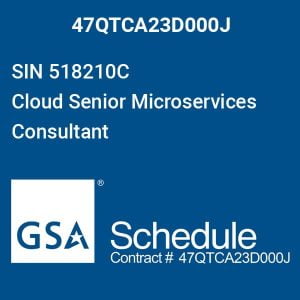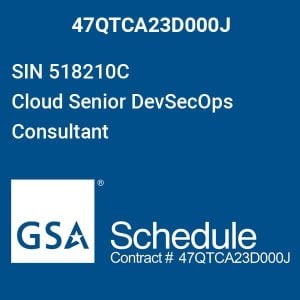GSA Multiple Award Schedule
The GSA Multiple Award Schedule (MAS) program is a cornerstone of federal government procurement in the United States, streamlining the acquisition process for a wide range of goods and services. As a dynamic and versatile contracting vehicle, the MAS program enables federal agencies to access pre-negotiated contracts with qualified suppliers, facilitating the purchase of products and services needed to fulfill their missions efficiently and cost-effectively.
- Scope and Flexibility:The GSA MAS program covers a vast spectrum of goods and services, making it one of the most comprehensive contracting solutions available. From IT services and professional consulting to office supplies, vehicles, and facility maintenance, the program’s scope is virtually limitless. This breadth of offerings simplifies the procurement process, as agencies can find and procure what they need within the program, reducing the need for time-consuming and complex competitive bidding.
- Efficiency and Savings:The MAS program is designed to save both time and money. By pre-negotiating prices and terms with suppliers, GSA ensures that federal agencies can access cost-effective solutions quickly. The streamlined acquisition process significantly reduces administrative burden and procurement lead times. Agencies can leverage their buying power to secure advantageous terms, resulting in substantial savings for taxpayers.
- Compliance and Oversight:The GSA MAS program places a strong emphasis on compliance and transparency. All suppliers participating in the program undergo a rigorous vetting process, ensuring that they meet the highest standards of integrity and quality. GSA regularly reviews and monitors contracts to verify that suppliers continue to meet these standards throughout the life of their contracts.
- Ease of Use:One of the key advantages of the MAS program is its user-friendliness. Federal agencies can access the program’s offerings through the GSA eBuy platform, where they can search for products and services, compare prices, and place orders. This centralized system simplifies procurement and enhances competition, benefiting both buyers and suppliers.
- Small Business Opportunities:The GSA MAS program is committed to fostering small business participation. It includes designated sub-programs, such as the GSA Schedules Small Business (GSSB) program, which focuses on ensuring that small businesses have access to federal contracting opportunities. These initiatives create a level playing field for small businesses, promoting economic growth and innovation.
- Innovation and Sustainability:The MAS program is not static; it evolves to meet the changing needs of government agencies and the American people. As sustainability and innovation become increasingly important, the program adapts to incorporate eco-friendly and cutting-edge solutions. Agencies can access innovative technologies and sustainable products through the MAS program, supporting environmental goals and modernization efforts.
- Customer Support:GSA’s commitment to customer support is unwavering. Agencies can access a wealth of resources, including training, webinars, and guidance, to help them navigate the MAS program effectively. GSA representatives are available to assist agencies at every stage of the procurement process, ensuring that they make informed decisions and obtain the best value for their acquisitions.
- Strategic Sourcing:The GSA MAS program aligns with the government’s strategic sourcing objectives. By consolidating procurement efforts, the program leverages the buying power of federal agencies to negotiate favorable terms with suppliers. This strategic approach optimizes the allocation of resources and enhances the government’s ability to respond to emerging challenges.
In conclusion, the GSA Multiple Award Schedule (MAS) program stands as a testament to the federal government’s commitment to efficient, transparent, and cost-effective procurement. With its broad scope, ease of use, and dedication to compliance and small business participation, the MAS program continues to be an indispensable resource for government agencies seeking to fulfill their missions while maximizing taxpayer value. By streamlining the acquisition process, promoting innovation, and fostering sustainability, the GSA MAS program remains a driving force in advancing the efficiency and effectiveness of government procurement in the United States.
AI strategies in Innovative AI Use in Private Universities
Hey there! Are you part of a private university’s leadership team or involved in decision-making roles? If so, you’ve likely heard about artificial intelligence (AI). But let’s dive deeper: Have you considered how AI strategies can revolutionize your institution? We’re here to explore the transformative power of AI and its innovative applications that are reshaping private universities. From boosting student engagement to streamlining administrative efficiency, we’ll even highlight some cutting-edge applications from renowned institutions like MIT. The Transformative Power of AI: What’s the Problem? In today’s ever-evolving educational landscape, private universities face several challenges impacting their competitiveness and operational efficiency. With growing student populations, diverse needs, and complex administrative tasks, traditional methods are simply no longer sufficient. That’s where artificial intelligence steps in as a game-changer. Key Challenges: Student Engagement:… Continue readingAI strategies in Innovative AI Use in Private Universities
GSA Schedule 70 Federal Procurement Insights
In today’s complex federal procurement environment, achieving efficiency and precision in government contracting processes is paramount. The General Services Administration (GSA) addresses this challenge through its comprehensive suite of pre-negotiated contracts known as “Schedules,” with GSA Schedule 70 standing out due to its specialized focus on IT services procurement. This analytical exploration seeks to elucidate the strategic advantages and structured methodologies involved in leveraging GSA Schedule 70, providing a pathway for streamlined federal contracting processes while emphasizing key benefits and an effective approach to bidding. Understanding the pivotal role that GSA schedules play in enhancing government contracting is crucial for business professionals seeking innovative solutions in AI and technology domains. By capitalizing on pre-negotiated terms, entities can significantly reduce the time and resources typically expended during procurement cycles, thereby boosting… Continue readingGSA Schedule 70 Federal Procurement Insights
Azure tribal solutions Leveraging Azure for Tribal Government Projects
In an era where digital transformation is critical to governance and operational efficiency, tribal governments are increasingly turning to advanced technology solutions. Among these innovations, Azure tribal solutions stand out as a key driver of change. Recent research indicates that approximately 70% of tribal governments are actively exploring or implementing cloud services like Microsoft Azure to enhance their operations. This trend highlights the necessity for adopting such technologies to tackle unique challenges faced by tribal communities. The Growing Trend of Cloud Technology in Tribal Governance Implementing Cloud Solutions for Enhanced Efficiency The integration of cloud technology, particularly through platforms like Microsoft Azure, is revolutionizing how tribal governments function. Data-driven solutions are enabling tribes to streamline operations and improve service delivery with notable efficiency gains. A 2022 survey highlighted that 85%… Continue readingAzure tribal solutions Leveraging Azure for Tribal Government Projects
Nonprofit Cloud Security Cloud Security Innovations for Nonprofits
In an era where digital transformation is indispensable even for nonprofit organizations, ensuring robust cloud security becomes a paramount concern. The transition to cloud services has made sensitive information more vulnerable to cyber threats, necessitating enhanced protective measures (Verizon, 2022). Nonprofit Cloud Security strategies must be prioritized as data breaches increasingly target financial and healthcare institutions, with nonprofits being equally susceptible due to their extensive reliance on digital platforms for operations (Bernstein et al., 2020). This article explores innovative cloud security solutions tailored specifically for nonprofit organizations and outlines strategic approaches that can significantly bolster their cybersecurity posture. Understanding Nonprofit Cloud Security Challenges The Unique Landscape of Nonprofits Nonprofits operate within a distinctive framework characterized by budget constraints, reliance on volunteer workforce, and high transparency requirements. Unlike profit-driven businesses, nonprofits… Continue readingNonprofit Cloud Security Cloud Security Innovations for Nonprofits
AI Education Integration – Innovative AI Uses in Territorial Education Agencies
In today’s rapidly advancing technological landscape, the education sector is experiencing a significant transformation. Artificial intelligence (AI) has emerged as an invaluable asset, offering powerful solutions to enhance how territorial education agencies manage data and improve student outcomes. From streamlining administrative tasks to personalizing learning experiences, AI’s potential in AI education integration is vast. Recent studies indicate that schools employing AI tools have reported up to a 30% increase in operational efficiency and a marked improvement in student engagement and performance. This step-by-step guide will explore innovative uses of AI within educational systems, focusing on how these technologies can be seamlessly integrated into school districts. We provide actionable insights for business professionals and decision-makers keen to leverage AI solutions to address specific challenges within their organizations. Integration of AI in… Continue readingAI Education Integration – Innovative AI Uses in Territorial Education Agencies
Multi Year Contracts State Exploring Multi Year Contracts for State Agencies
In today’s fast-paced world, state agencies are increasingly adopting multi-year contracts to enhance efficiency and fiscal responsibility. These agreements offer numerous advantages that can revolutionize procurement strategies. According to the National Association of State Procurement Officials (NASPO), these contracts provide stability and cost savings while fostering stronger vendor relationships. This comprehensive guide will walk you through understanding, implementing, and maximizing the benefits of multi-year contracts for state agencies. Why Multi-Year Contracts? In a landscape where fiscal prudence is paramount, multi-year contracts have emerged as a strategic tool for managing public funds more effectively. By committing to longer-term agreements, state agencies can lock in prices, reduce administrative burdens, and build sustainable vendor partnerships—all while ensuring consistent service delivery over time. Background on Contract Trends Historically, many state agencies relied heavily on… Continue readingMulti Year Contracts State Exploring Multi Year Contracts for State Agencies
Affordable AI Education Affordable AI Implementation for K12 Schools
In an era where education is rapidly evolving, integrating Artificial Intelligence (AI) into classroom settings stands out as a transformative strategy. For educators striving to enhance learning experiences, the challenge isn’t just about adopting AI—it’s about doing so affordably. Affordable AI education solutions are essential for schools eager to boost student outcomes without hefty financial investments. This step-by-step guide offers practical advice and actionable steps for K12 institutions looking to integrate cost-effective AI tools into their educational frameworks. The Problem: High Costs of AI Integration While the benefits of AI in education—such as personalized learning experiences, improved engagement, and enhanced administrative efficiency—are clear, many schools encounter significant financial barriers. These obstacles can deter even the most forward-thinking educational institutions from embracing AI technologies. Causes of High Costs Initial Investment: Many… Continue readingAffordable AI Education Affordable AI Implementation for K12 Schools
Cloud Solutions Tribal Cloud Solutions for Tribal Government Innovation
In today’s rapidly evolving technological landscape, tribal governments are uniquely positioned to leverage cloud solutions tailored specifically for their needs—known as Cloud Solutions Tribal. These customized services promise enhanced operational efficiency and foster innovation within tribal governance by utilizing data-driven strategies. This blog post delves into how these innovative cloud solutions can revolutionize tribal government operations, driving transformation in service delivery and administrative processes. Why Cloud Solutions Tribal Are Essential Increased Operational Efficiency Statistics: A study by the National Congress of American Indians revealed that 85% of tribal governments have reported improved operational efficiencies after integrating cloud solutions. Leveraging cloud computing significantly enhances operational efficiency within tribal governments by streamlining processes and reducing manual workloads, enabling faster decision-making and service delivery. For instance, automated workflows can reduce processing times for… Continue readingCloud Solutions Tribal Cloud Solutions for Tribal Government Innovation
AI Healthcare Innovations AI Innovations in Health IT Systems
In today’s rapidly evolving healthcare landscape, AI Healthcare Innovations are revolutionizing how health IT systems operate. From managing electronic health records (EHRs) to employing predictive analytics for better patient outcomes, artificial intelligence is at the forefront of transforming medical data analysis and healthcare solutions. With AI-driven technologies reshaping the industry, it’s crucial for business professionals and decision-makers to understand these innovations in order to make informed choices that enhance efficiency and improve patient care. Introduction: Exploring AI in Healthcare Options The integration of artificial intelligence into health IT systems presents various avenues for innovation. In this step-by-step guide, we’ll explore five key AI applications transforming healthcare: AI-Driven Electronic Health Records Management Machine Learning in Medical Data Analysis Predictive Analytics for Patient Outcomes Automated Imaging Diagnostics Virtual Health Assistants Each of… Continue readingAI Healthcare Innovations AI Innovations in Health IT Systems











